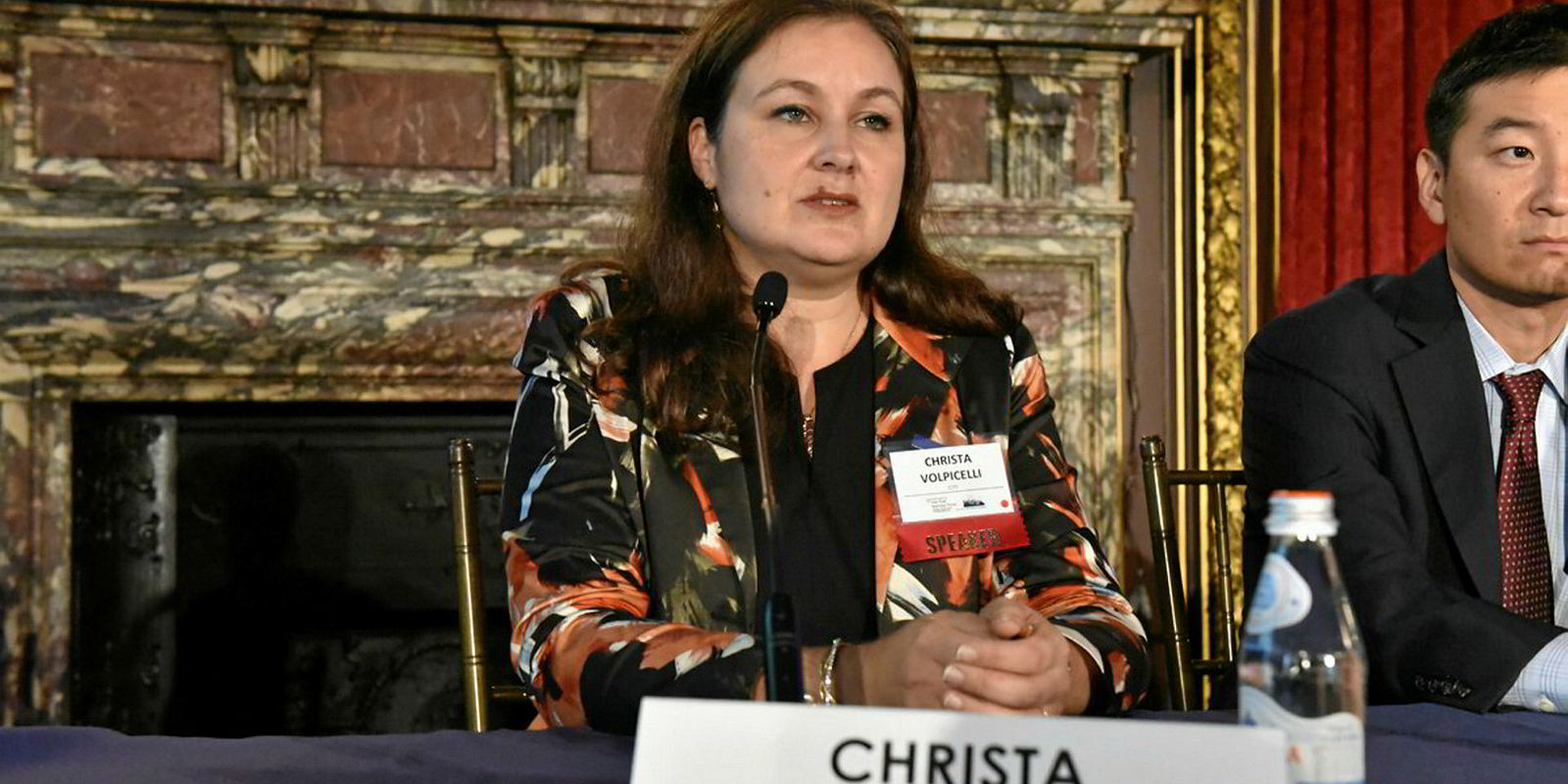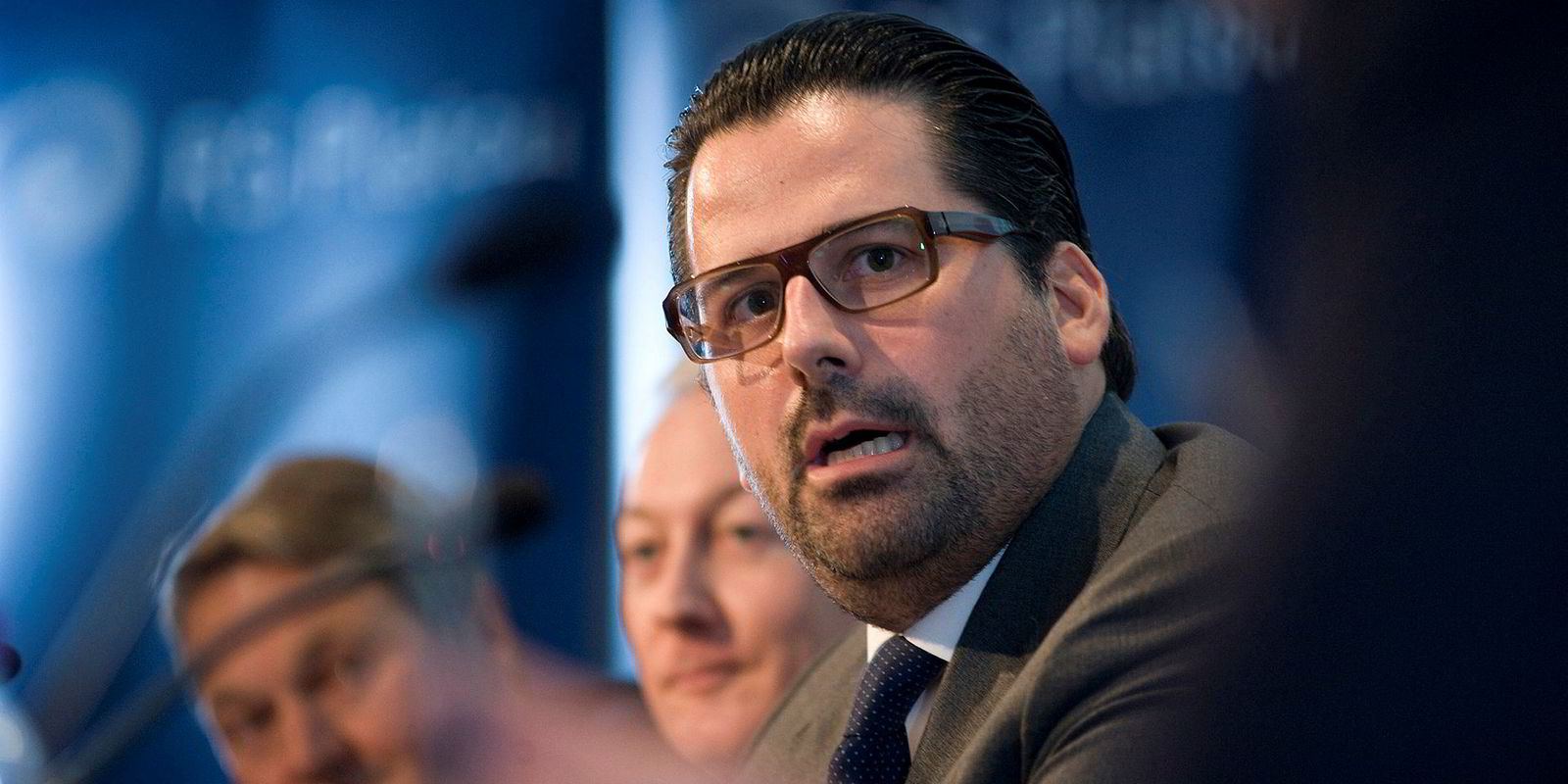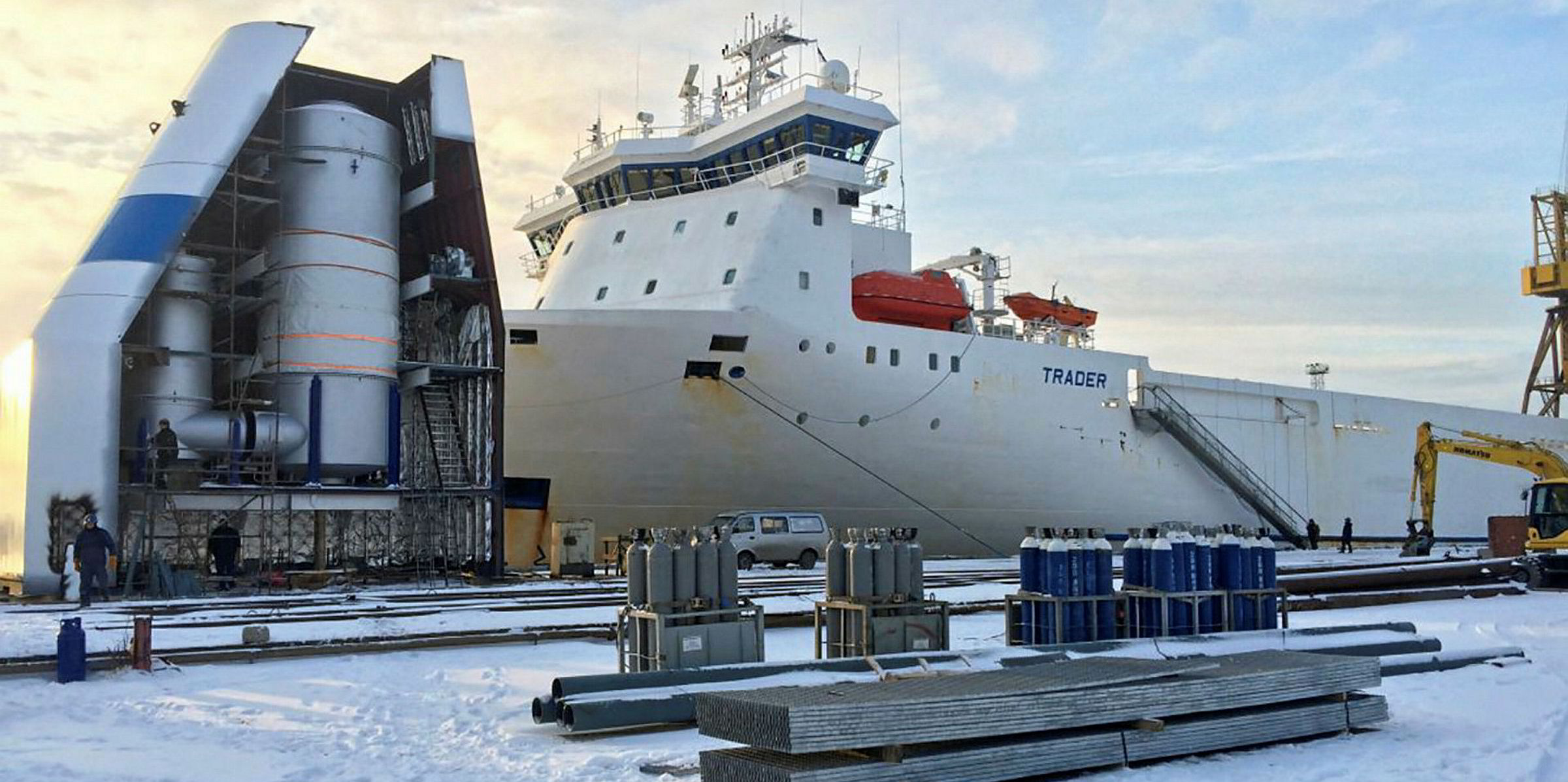Scrubbers have been blamed for a lot in the past several months, with focus usually on the wash water they emit and whether or not it pollutes oceans beyond scientifically acceptable boundaries.
But now there could be a new menace: scrubbers may be hazardous to mergers.
That is right, mergers. The kind that happen on those rare occasions when shipowners decide they might be better off placing personal interests aside for the sake of a larger, stronger company.
Scrubbers have become one more reason that this sort of consolidation may be difficult, according to an investment banker speaking at this week’s joint shipping conference of the Hellenic-American and Norwegian-American chambers of commerce in Manhattan.
“It may be a hurdle to consolidation if one company is doing scrubbers and the second one is not,” said Christa Volpicelli, the managing director at Citigroup’s global transportation group.
Varying viewpoints
“No one knows who’s right on the issue but everyone has a view, and it’s probably not going to be resolved until after the 2020 implementation deadline.”
Volpicelli did not mention specific companies, although she appeared to have them in mind. She did not reply to a follow-up query for further clarification on the subject.
Scrubbers are set to be installed on only a small amount of the world’s fleet — estimated to be between 5% and 10% of all vessels.
However, the percentage will be larger among fleets of publicly listed companies — the most likely candidates to engage in merger and acquisition (M&A) activity.
The ratio is thought to be larger for at least two reasons.
Scrubbers are expensive, ranging from $2m upwards for each unit, and are extraordinarily difficult to finance. Public companies generally speaking are more financially liquid than private ones, and tend to have established banking groups willing to amend debt agreements.
Some sources indicate that the second factor is public investors expect shipowners to install them — not least for the potential returns expected to result from fuel-spread disparities following the scheduled 1 January 2020 implementation date.
So it does stand to reason that at least one party in M&A talks may have opted for the exhaust gas cleaning systems while a second — maybe even a private company looking to merge into a listing — would have taken a pass.
Little evidence
Veteran advisory specialist Mark Friedman of Evercore Partners said he has not personally encountered the sort of scrubber obstacle Volpicelli describes, but he understands her reasoning.
“I could see how it could be an issue where the two counterparties have a different view whether the capital spent is highly productive and valuable or not,” Friedman told TradeWinds.
It may be a hurdle to consolidation if one company is doing scrubbers and the second one is not
Christa Volpicelli, managing director at Citigroup’s global transportation group
“If both sides believe in scrubbers, I would expect that merger counterparties would add the capital expenditures to the companies' unadjusted asset values to create an adjusted NAV [net asset value].
“By contrast, if counterparties are more resistant to the value of the scrubbers you could expect that one or both sides in the M&A trade would not adjust the respective NAV values.”
Friedman advised Capital Product Partners on its pending $1.65bn merger with Craig Stevenson-led Diamond S Shipping, which is expected to close in the first half of this year.
In that case, private Diamond S is merging into Capital Product’s public listing. Both owners had taken steps to install scrubbers on some vessels in their fleets. The combined company primarily features MR product tankers and suezmax crude tankers.
In other recent, large-scale tanker consolidation moves, Scorpio Tankers had not yet taken a position on scrubbers after it acquired Navig8 Product Tankers in a $1.1bn deal in 2017.
Scorpio later decided to invest heavily in open-loop scrubbers for the fleet, and Navig8 also has become a scrubber disciple in new venture Products 2020.
Likewise, neither Euronav nor Gener8 Maritime had taken a position on scrubbers when the Belgian company completed its $504m acquisition of the latter in early 2018. Euronav and outgoing chief executive Paddy Rodgers have since become staunch opponents of scrubbers.






